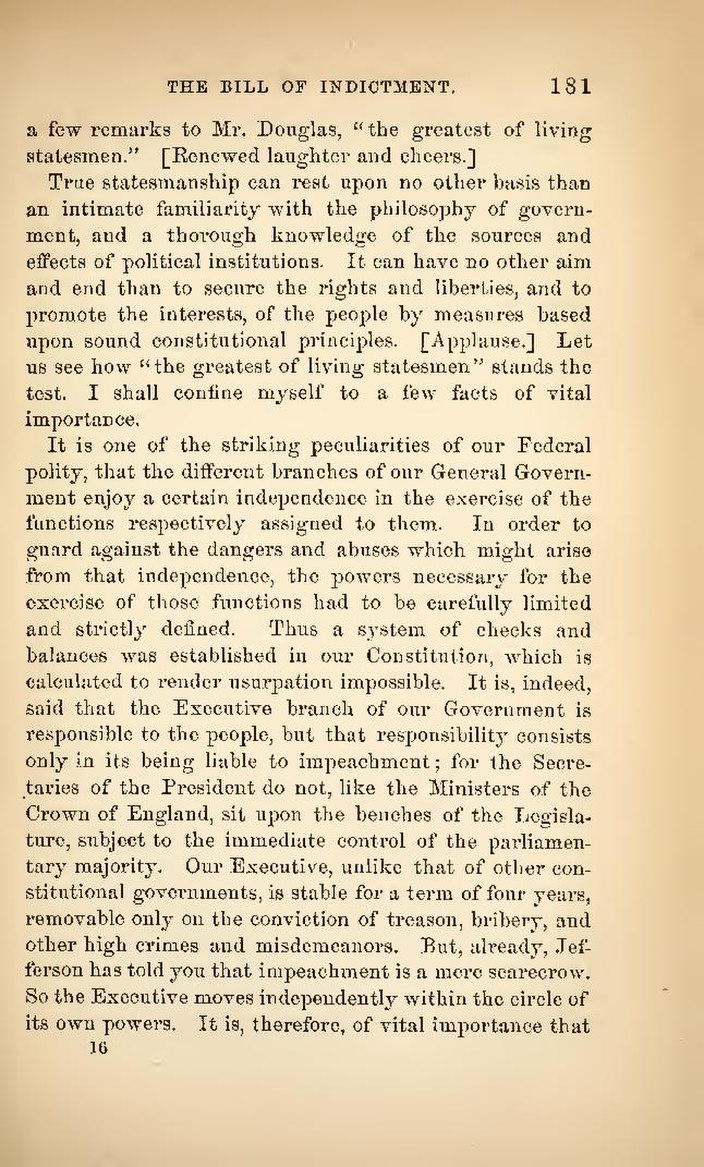a few remarks to Mr. Douglas, “the greatest of living statesmen.” [Renewed laughter and cheers.]
True statesmanship can rest upon no other basis than an intimate familiarity with the philosophy of government, and a thorough knowledge of the sources and effects of political institutions. It can have no other aim and end than to secure the rights and liberties, and to promote the interests, of the people by measures based upon sound constitutional principles. [Applause.] Let us see how “the greatest of living statesmen” stands the test. I shall confine myself to a few facts of vital importance.
It is one of the striking peculiarities of our Federal polity, that the different branches of our General Government enjoy a certain independence in the exercise of the functions respectively assigned to them. In order to guard against the dangers and abuses which might arise from that independence, the powers necessary for the exercise of those functions had to be carefully limited and strictly defined. Thus a system of checks and balances was established in our Constitution, which is calculated to render usurpation impossible. It is, indeed, said that the Executive branch of our Government is responsible to the people, but that responsibility consists only in its being liable to impeachment; for the Secretaries of the President do not, like the Ministers of the Crown of England, sit upon the benches of the Legislature, subject to the immediate control of the parliamentary majority. Our Executive, unlike that of other constitutional governments, is stable for a term of four years, removable only on the conviction of treason, bribery, and other high crimes and misdemeanors. But, already, Jefferson has told you that impeachment is a mere scarecrow. So the Executive moves independently within the circle of its own powers. It is, therefore, of vital importance that
